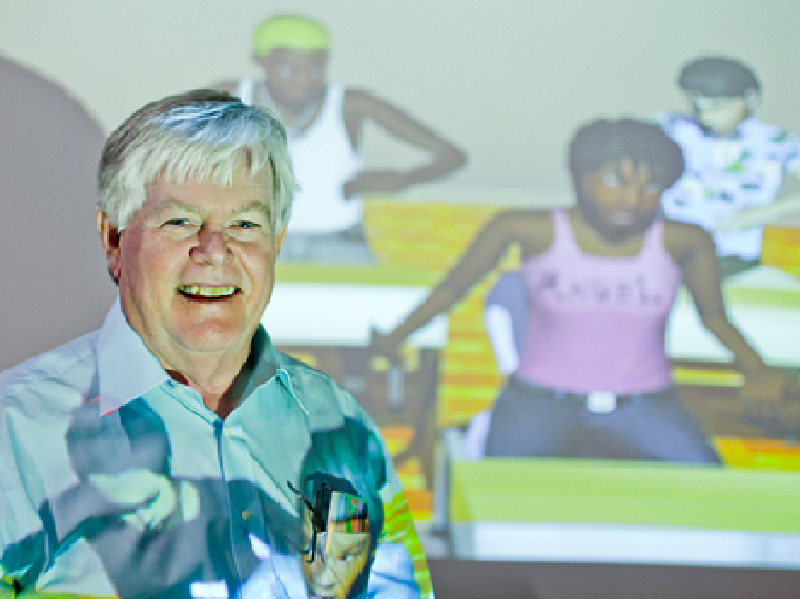
Two University of Central Florida professors are using a $434,800 grant to develop an interface to teach young Latina girls to resist the peer pressure to have sex.
The program allows a trained "interactor" to manipulate life-sized avatars projected on-screen to engage players in scenarios testing their resistance to peer pressure.
Anne Norris, UCF nursing professor, said the interactor remains hidden while using an avatar to ask the player, a Latina age 12 to 15, sensitive questions she might encounter when talking with her friends.
"The question might be, 'Why don’t you date an older boy?'" Norris said. "The player will be rewarded for giving answers that show she is resisting peer pressure while still appearing 'cool' to her friends."
Norris feels the game's scale contributes directly to its impact. "It’s important to point out that this game will not be played on desktop or portable computers," Norris said. "This is a game that will be introduced in controlled settings, such as schools and after-school programs, where the avatars are projected as life-sized, to make the experience as real as possible for the players."
Charles Hughes, UCF computer science professor, said the interactors themselves will play a large role in making the experience true-to-life.
"The interactor will have spent a significant amount of time with members of the subject population in order to understand as much about the culture, body language, and speech patterns to be believable,” Hughes said. “In fact, several high school students are working as apprentice interactors, mentoring and being mentored by our professional team."
Norris said video games provide unique advantages when teaching practical skills to children.
"The interface is superior for teaching social skills to middle school youth because it creates an opportunity to practice these skills in private," Norris said. "A game experience can be tailored to the skill level of the player."
[embed:http://www.youtube.com/watch?v=KymFWYvgdzo ]
Hughes said an interactive interface allows for a comprehensive program that educates children rather than preaches to them.
"This combination of technology helps to make the experience more personal, realistic, and adaptable," Hughes said. "We feel those characteristics are critical to its success."
The professors plan to develop more modules for the program as well as versions for boys and other female demographics.
"The applications are for the subject-matter experts to decide," Hughes said. "From a pure technology perspective, what we do has applications in all sorts of areas." Norris suggested a similar interface could be used in aiding substance-abuse-prevention programs.
Hughes said the project is ultimately about assisting children in protecting themselves from life-altering decisions. "The goal of this project is [to help] these young people build the skills to stay true to themselves even as peer pressure may be attempting to push them down other paths," Hughes said. "From my perspective, I want these pre-teens to keep their life options open so they can attain their true potentials."


